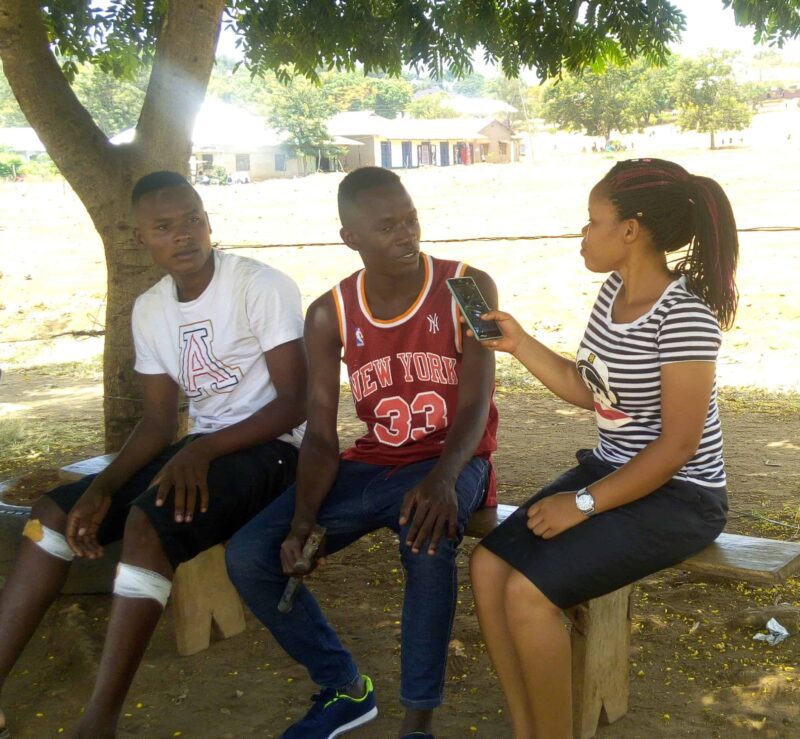When Peter Mtoi and Neema Mziray, both young journalists working for the Voice of Africa (VOA) community radio station in Korogwe, Tanzania, set out to report the challenges facing the town’s residents they were worried about how their stories would be received by the local authorities.
They had just gone through a content improvement training provided by Internews but were still not sure how best to apply their new skills without inviting a backlash.
Mtoi and Mziray covered two controversial community issues in the Mtonga area of Korogwe: the lack of a permanent market for women entrepreneurs and the residents’ need for a burial space.
Mtonga women entrepreneurs needed a permanent market area to avoid moving from one place to another to sell their produce. Mtonga local administration proposed a location, but the entrepreneurs turned it down, arguing that it was too far from their customers and lacked basic facilities. They instead moved their businesses to a playground, but football players chased them away.
On the burial issue, Mtonga residents had contributed money to buy a new burial space. However, the new space that was bought was rocky and waterlogged, rendering it unfit for burial activities. Residents were forced to continue using the old place, which lacks capacity for further burials, and accused leaders of misusing their contributions.
At first, the area executive committee leaders refused to talk to the reporters, but on learning that the media was pursuing the issue, the ward secretary called a meeting of community leaders where members demanded answers to the alleged misuse of funds. It took the VOA Chief editor’s intervention to get the leaders to tell their side of the story.
Mtoi and Mziray got nervous when they learnt their stories had prompted Nicodemus Beyi, the Korogwe District Executive Director to react. “When we were told that the district executive director was at our station and asking for us, we could only think of trouble ahead. But, to our surprise, he praised us and promised to work on the issues,” said the reporters.
VOA reporter William Mhina says his colleagues now engage the community more closely in their stories, “We see the power of our station in helping ordinary citizens air their challenges and opinions as well as holding authorities accountable.”
Alloyce Chalema, production manager, understands the value of focusing on local needs and adhering to ethics. “We covered a story on allegations of misuse of community funds and we are safe,” says Challema.
Since covering the two stories, Neema and Peter have learnt that Mtonga residents have been promised a solution to the burial site after the first one proved unsuitable. Meanwhile, the women entrepreneurs in Mtonga are continuing to use the football playground until a new location is found.
Chemuye Amos, the station executive director, has praised Internews’ training and mentorship in facilitating the new focus on community issues and holding authorities to account. “Internews has enabled us to understand that a professional station must ensure that the content is relevant to the target population,” said Chemuye.
Internews’ project in Tanzania, Boresha Habari, is funded by USAID, and implemented in partnership with FHI 360. It seeks to support an open, inclusive environment in which media and civil society provide accurate and impartial information that promotes participation, inclusion, and accountability. A core focus of this activity is the engagement and empowerment of women and youth in order to elevate their voices, influence, and issues in the public sphere as both producers and consumers of information.
By Ali Mwadini, Internews Trainer in Tanzania
(Banner photo: Neema Mziray (R), a reporter for Voice of Africa, interviews community members in Mtonga about local issues. Credit: Internews)
